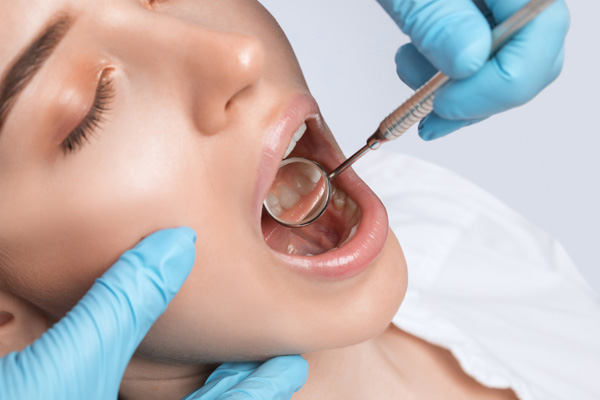Can a Root Canal Save a Tooth?

If the root canal of a tooth is infected, you need to visit a dentist as soon as possible. Endodontic treatment, commonly called root canal therapy, entails repairing a damaged and infected inner layer of the tooth. By performing the treatment, a dentist can save the infected root canals from abscess or extraction.
What are root canals?
Root canals are hollow chambers in the tooth’s root containing the dental pulp and nerves. The dental pulp is made up of living material and nerve endings, which transmit information to the brain and cause pain or discomfort when inflamed or irritated. The pulp is the innermost layer of the teeth and can become damaged due to severe tooth decay or a compromised tooth structure.
If the tooth is healthy, the root canals should not be exposed to bacteria or plaque. However, if the tooth is cracked, badly damaged, chipped or the gum is infected, the root canal will be prone to infection. Root Canal can save a tooth with severe decay or dead pulp.
Symptoms of root canal infection
The most common sign that patients experience with exposed or infected root canals is tooth pain. Discomfort can occur as a persistent nagging ache or sharp pain when biting on food or taking a hot or cold drink. If the infected tooth is not treated promptly, the pain may stop eventually. Some patients may think erroneously that it means recovery, but the fact is that the nerve endings died and the infection is still there. The infection may spread and cause an abscess around the base of the tooth roots.
Why root canal therapy is necessary
Root canal therapy is necessary to help save the tooth. If left untreated, the complications that result from an infected root canal will leave no choice but to extract the tooth to stop the infection from spreading to other nearby oral structures. Tooth loss due to injury or disease has adverse effects on the oral health and general wellbeing of the patient, so it is advisable to save the natural tooth if possible. Tooth replacement options are not exactly inexpensive, as well.
After the dentist examines the diseased or damaged tooth, they will suggest the most suitable treatment option after a professional evaluation. The procedure is done to clean the infection thoroughly from the pulp chamber of the tooth to stop the spread of infection. The tooth chamber will be filled, and a crown will be used to protect the tooth from further damage.
Compared to tooth extraction, root canal therapy is less invasive. The dentist will ensure the patient’s comfort throughout the procedure by using an appropriate anesthetic.
Final note
Before opting to remove an infected or diseased tooth, root canal therapy is an option to consider. If you have noticed any sign of infection or pain, make sure you reach out to our dental office as soon as possible to reserve an appointment.
Request an appointment here: https://www.allsmilesdentalcenter.com or call All Smiles Dental Center at (210) 714-7429 for an appointment in our San Antonio office.
Check out what others are saying about our dental services on Yelp: Root Canal in San Antonio, TX.
Recent Posts
Fluoride is an all-around defense for your teeth, gums, and whole mouth. This is why many towns add the mineral to drinking water as a matter of public health. Dentists also use fluoride treatments to protect their patients’ teeth from tooth decay.Read on for a brief walkthrough of how fluoride protects the teeth at a…
Preventative dental care such as visiting the dentist is a huge cause of anxiety and stress in many patients. The thought of being in the examination chair and hearing the tools and possible irritation of your teeth and gums can be quite upsetting. However, going to the dentist regularly will eliminate those concerns as you…
Part of preventative dental care is not only regularly maintaining your dental routine at home but also visiting your dentist twice a year. During this visit, they will look at the condition of your teeth and gums. Things they look out for are any sensitivities, bleeding, soft spots, or areas where bacteria are more likely…
Preventative dental care is significant because the dentist can quickly detect, diagnose, and treat dental problems in the first stage. Even if the dental problem is not noticeable, the dentist can do a simple examination to find signs of dental disease.Once it becomes more serious dental disease, it may not heal naturally. In addition, repeated…


